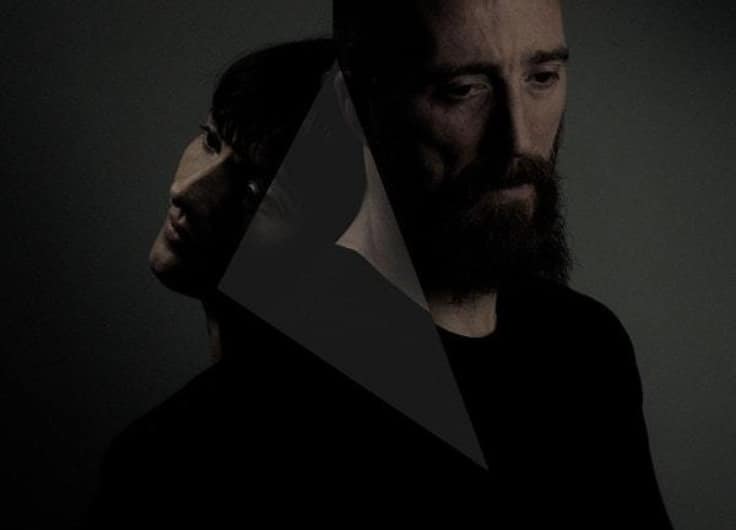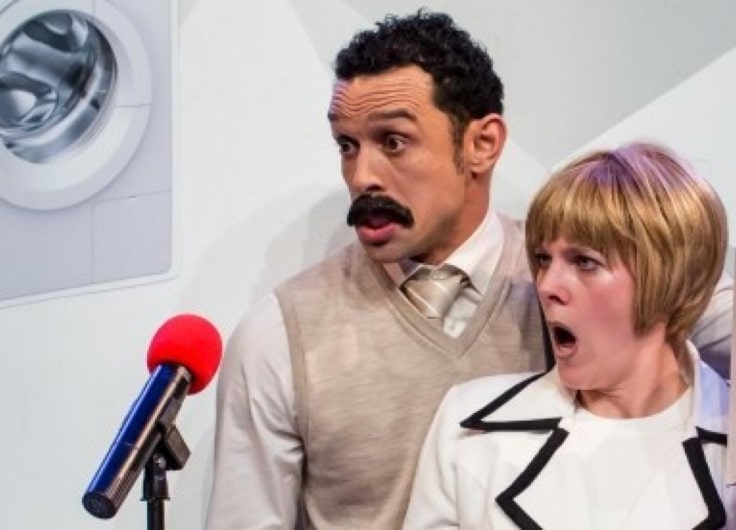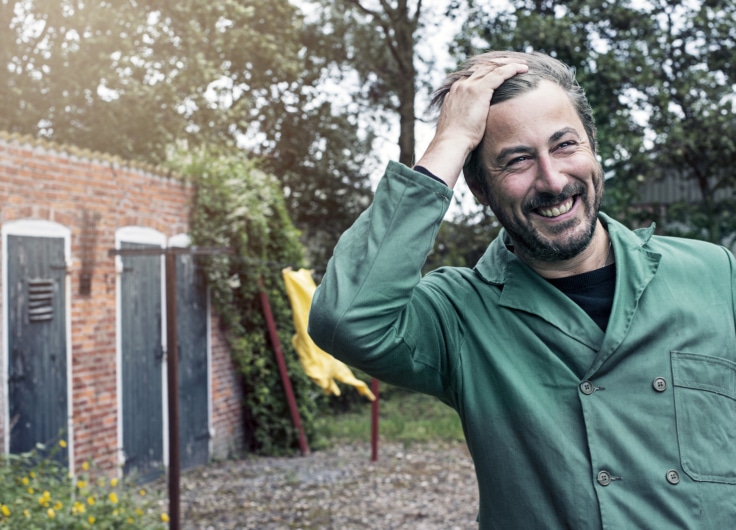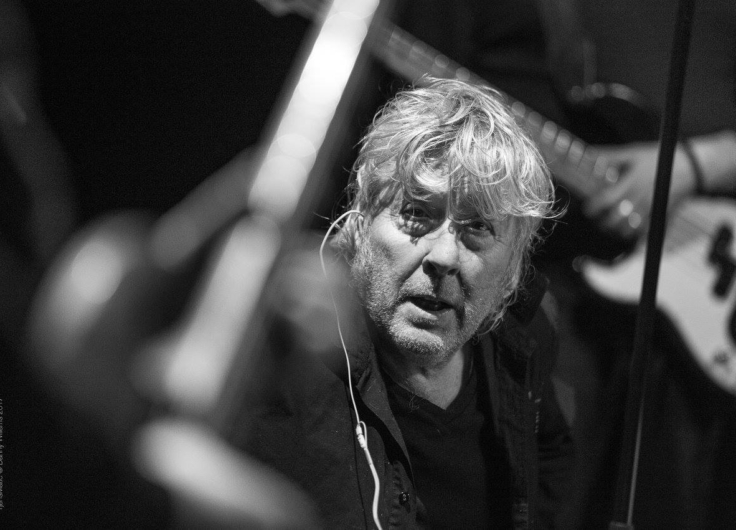Charlotte Adigéry: Alien, Intriguing and Ready to Make You Dance
The festival season has barely started, but, already, Charlotte Adigéry seems to be making her mark this year. The Belgian-Caribbean artist from Ghent arrived on the scene some three years ago, under the watchful eyes of musical brothers Stephen and David Dewaele (Soulwax). Ever since, this rising star in the electro pop firmament has been drawing audiences into her playful, curious world, one beat at a time.
“I don’t see myself as having a kinky side at all – I wish I had though, I’m actually rather boring!” Charlotte Adigéry confided this to a journalist writing a piece for British magazine Huck when asked about ‘Cursed and Cussed’, one of the songs featuring on her second EP Zandoli (2019). Her most recent musical gem was produced by Stephen and David Dewaele, better known as Soulwax (and out via their DEEWEE label). The songs deal with a series of intriguing topics – ranging from queer culture to sex tourism and synthetic wigs – accompanied by thumping beats that sound simultaneously alien and intriguing.
Together with Boris Zeebroek (aka Bolis Pupul, a member of both Hong Kong Dong and The Germans), Adigéry has created a sweaty, experimental little universe, which could even teach filmmaker Gaspar Noé a thing or two. How did this Belgian-Caribbean artist from Ghent manage to put herself on the map in record time?
Zandoli
Charlotte Adigéry’s career got off to a flying start in early 2019. In January, she supported living legend Neneh Cherry on her Australian tour with WWWater, her indie-electro group, which further consists of above-mentioned Zeebroek and former Soulwax drummer Steve Slingeneyer. Just under a month after that tour, she released her EP Zandoli
under her own name.
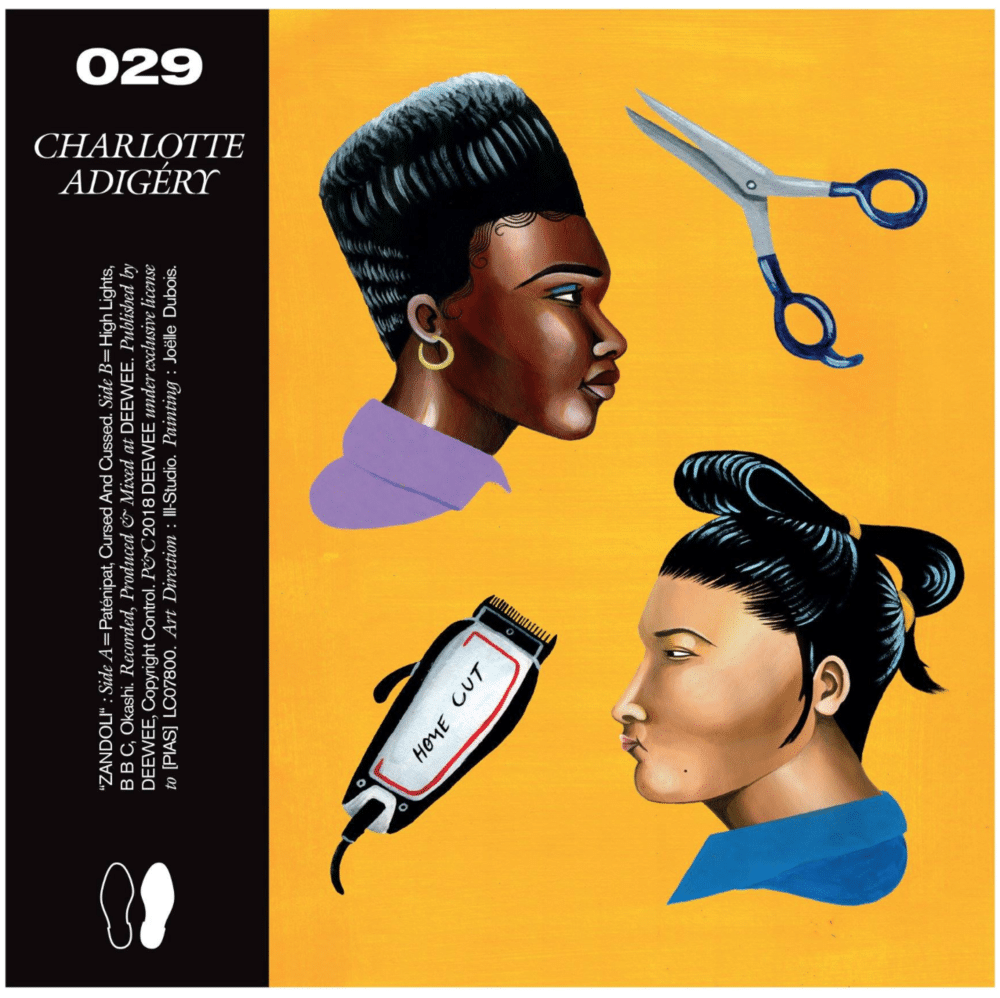
After Adigéry was asked to open for Young Fathers (a multifaceted Scottish band with African roots) during their European tour, and her EP received a rave review from influential website Pitchfork, there was truly no stopping her. The Guardian labelled the musician “one to watch”, she was invited to perform live on Gilles Peterson’s show on BBC Radio 6 Music, and she graced international stages at festivals around the world. “Is this real?”, Adigéry wondered in an Instagram post earlier this year. A legitimate question, especially seeing she only has three EPs to her name to date.
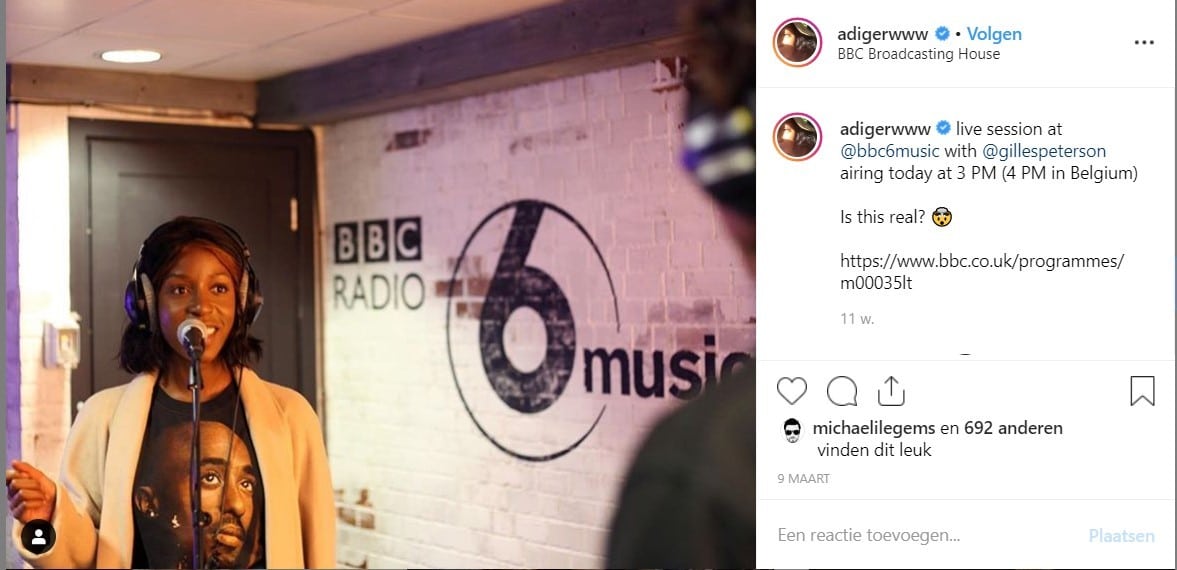
Musical mentors
“I also have something to say.” Once Adigéry realised this, she was ready to move things forward. After graduating from the PXL University of Applied Sciences and Arts in Hasselt, she worked as a session singer and backing vocalist with various blues, reggae and soul bands. She started to crave a career of her own after she was approached to sing backing vocals for Baloji and Arsenal.
Soon after Adigéry was cast in a small role in the film Belgica, which really got the ball rolling. During the production, she was introduced to Soulwax masterminds Stephen and David Dewaele, who would later become her musical mentors. While they were recording ‘The Best Thing’ together, Adigéry worked up the courage to introduce them to her own music. Both brothers could hardly contain their excitement: “You can go beyond the borders of Flanders. You are going to be a star.”
Flanders’ best-known pair of deejaying brothers was not wrong, back in 2016. About a year later, Adigéry was already being considered the next big thing with her first offering as WWWater, i.e. La falaise. That EP’s cover features a Polaroid depicting Adigéry as she is watering her plants. A symbolic image underlining she is just at the start of her musical career. WWWater is alive with raw emotion, and takes you on an adventurous quest for her sound, both within and outside of standard instruments. Adigéry twists and stretches sophisticated electronic tunes, acoustic guitars, and experimental spoken word between her fingers like a rubber band, preventing it from ever snapping.
Caribbean roots
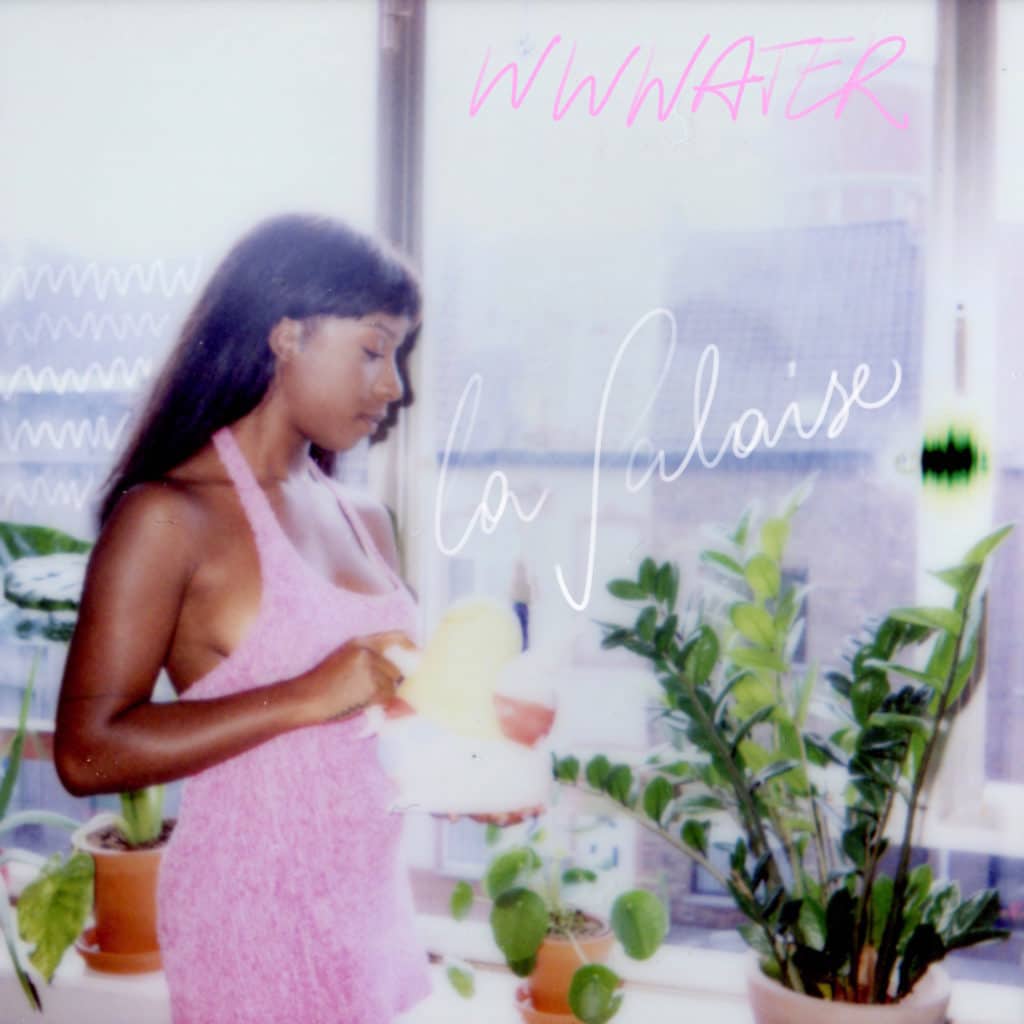
One place is ever-present in her music: Martinique, her mother’s home country. La falaise, for instance, refers to a waterfall on the Caribbean island. Adigéry soon started to realise in which ways the colour of her skin influenced the music she wanted to make. “I believe I should be a spokesperson for black Belgian artists. I do not want to point the finger, because I am not angry with anyone, but it is my goal to introduce people to some nuance. To teach them something.”
Combining those roots with a few key notions from the indie music scene is truly what sets her apart. So, what inspires her? Well, among others, British singer and producer FKA Twigs’ sensual playfulness, British musician and conceptual artist Dean Blunt’s enigmatic experiments, and American producer Yves Tumor boundless electronica.
Wig wearer
Adigéry does not online stress that her exotic roots are an essential part of her identity through the WWWater project. She also explores what it means to be a black artist in 2019 under her own name. WWWater and Charlotte Adigéry might be two sides of the same coin, but that does not imply they rely on identical working methods.
In Charlotte Adigéry’s minimalist world of beats, she observes things from a distance. In ‘High Lights’, a track on the Zandoli EP, for instance, she discusses her love for wigs. It is a powerful response to critics accusing her of a lack of style for wearing wigs. Adigéry turns that criticism on its head. “Wearing a wig means you take on a different identity. That does not mean I am in denial about who I am, but rather that I am expanding myself. It is actually quite similar to changing your outfit.”
The other Zandoli tracks further prove that Adigéry is spearheading one of Belgium’s most adventurous musical projects. In ‘Paténipat’ she requires just two words, and a clean, pulsating beat in order to get noticed by numerous international music magazines. Taking inspiration from the traditional Guadeloupian Gwo Ka dance, Adigéry merges past, present and future by repeating the words “Zandoli paténipat” (Creole for “the gecko has no legs”) over and over, dragging you with her in a feverish voodoo dream.
Uncertainty and identity
Perhaps the single most striking thing about Charlotte Adigéry is the fact that she is so down to earth, and how that is reflected in her music. Underneath one of Adigéry’s recent Instagram posts it says, “Be the best version of yourself you can be”. The post consists of a series of run-of-the-mill selfies, complete with an ordinary one-liner. That in itself is a statement in this age of social media, which is completely inundated with the Western aesthetic ideal. The notions of uncertainty and identity are part and parcel of the songs crafted by both Adigéry’s alter egos, in the wake of other contemporary (black) artists, including Kevin Abstract, Brockhampton, Denzel Curry and Tierra Whack, who all use those elements as building blocks.
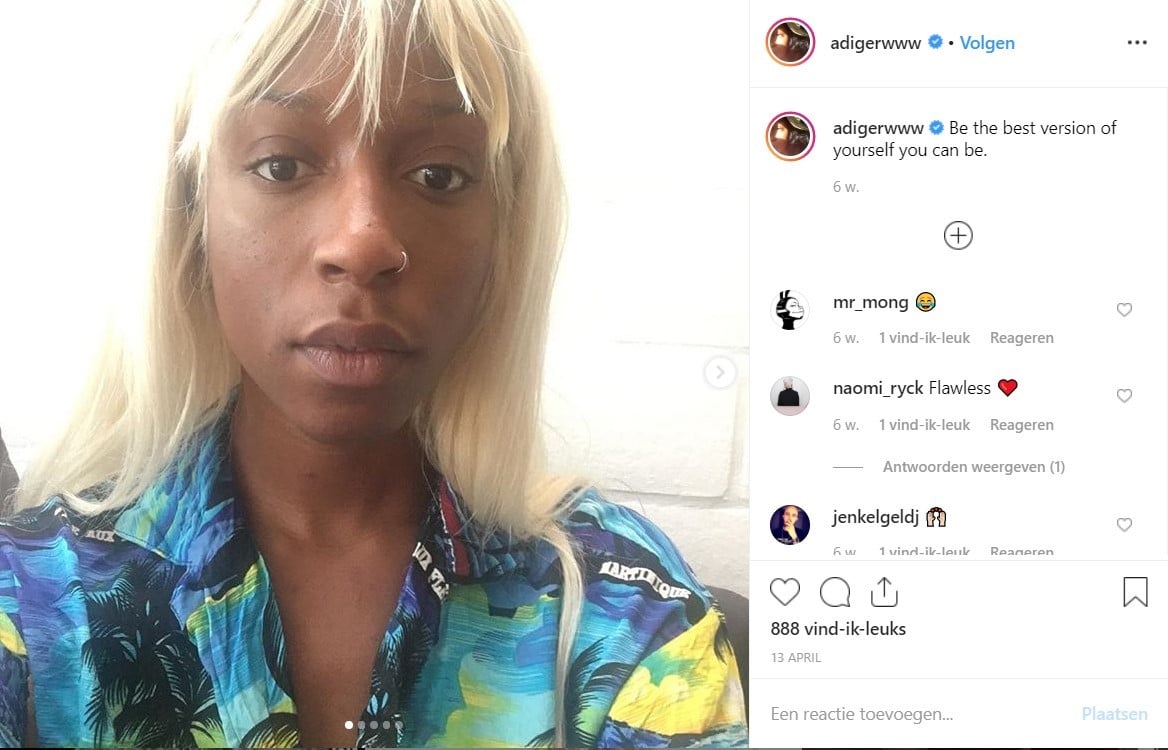
Uncertainty is Generation Y’s mental illness. In both of her projects, Aldigéry condemns this. “In WWWater, I scream at the top of my lungs: goddamn it, I àm enough! People should learn to be proud of who they are, without wanting to meet some unattainable ideal of beauty,” she says in interviews.
When using her own name, her criticisms are more subtle, more intelligent and above all, more likely to make you dance. That does not mean, however, that the underlying message is less powerful – quite the contrary, actually: it makes sure you will hear her playful comments on society to be blasted through the speakers in the clubs. We cannot wait to find out where and how her next musical output will sound.
You can catch Charlotte Adigéry under her own name and as WWWater at various European music festivals throughout the summer. On November 15, she wraps up her tour at Vooruit in her hometown of Ghent.



